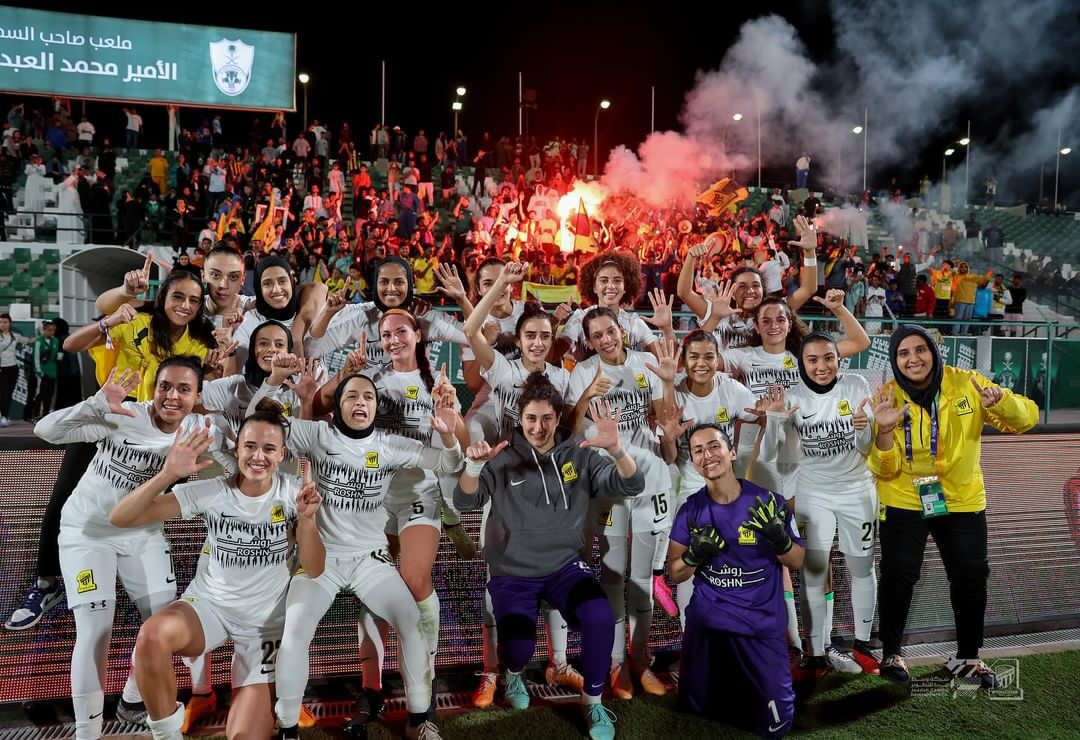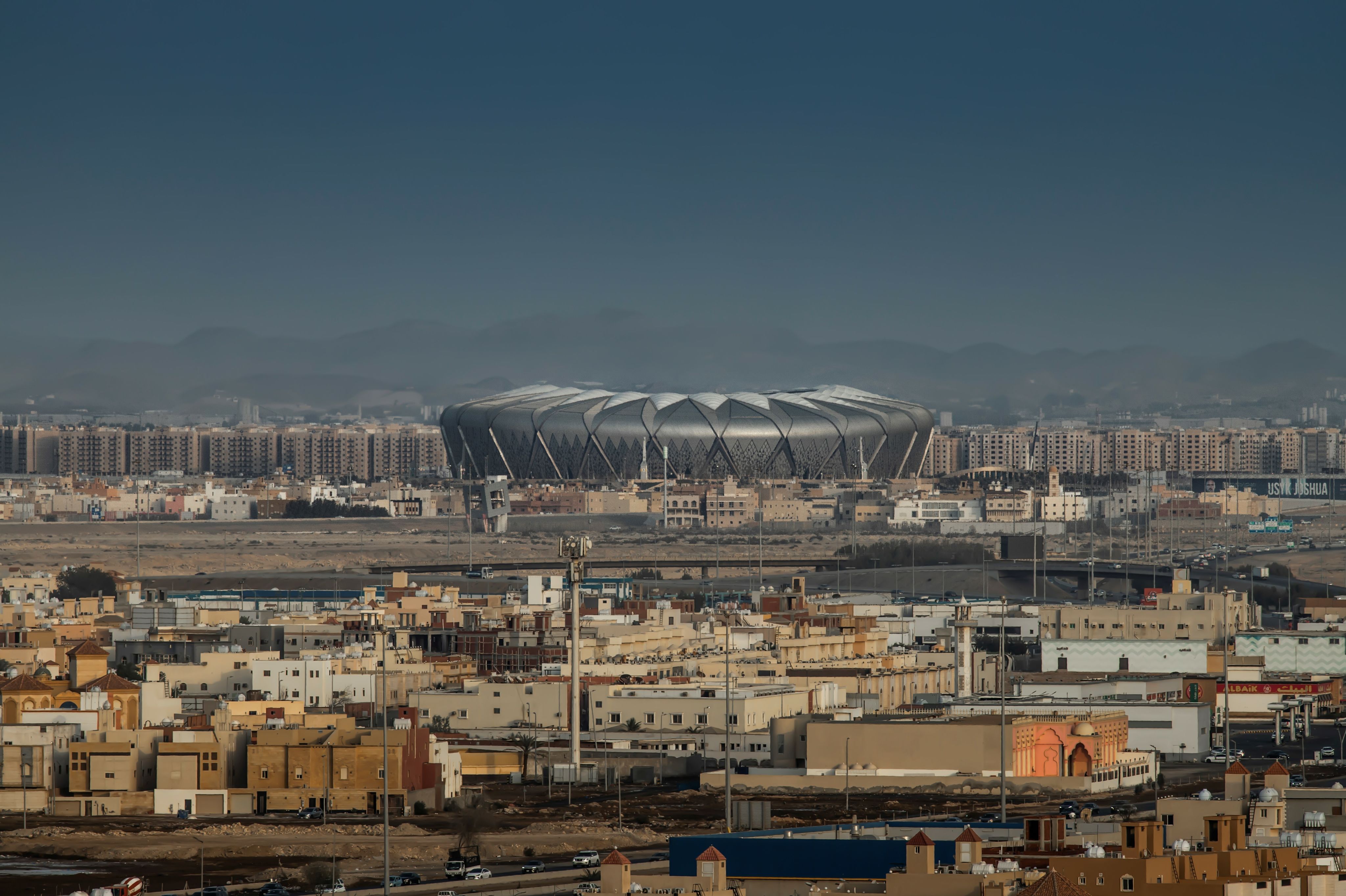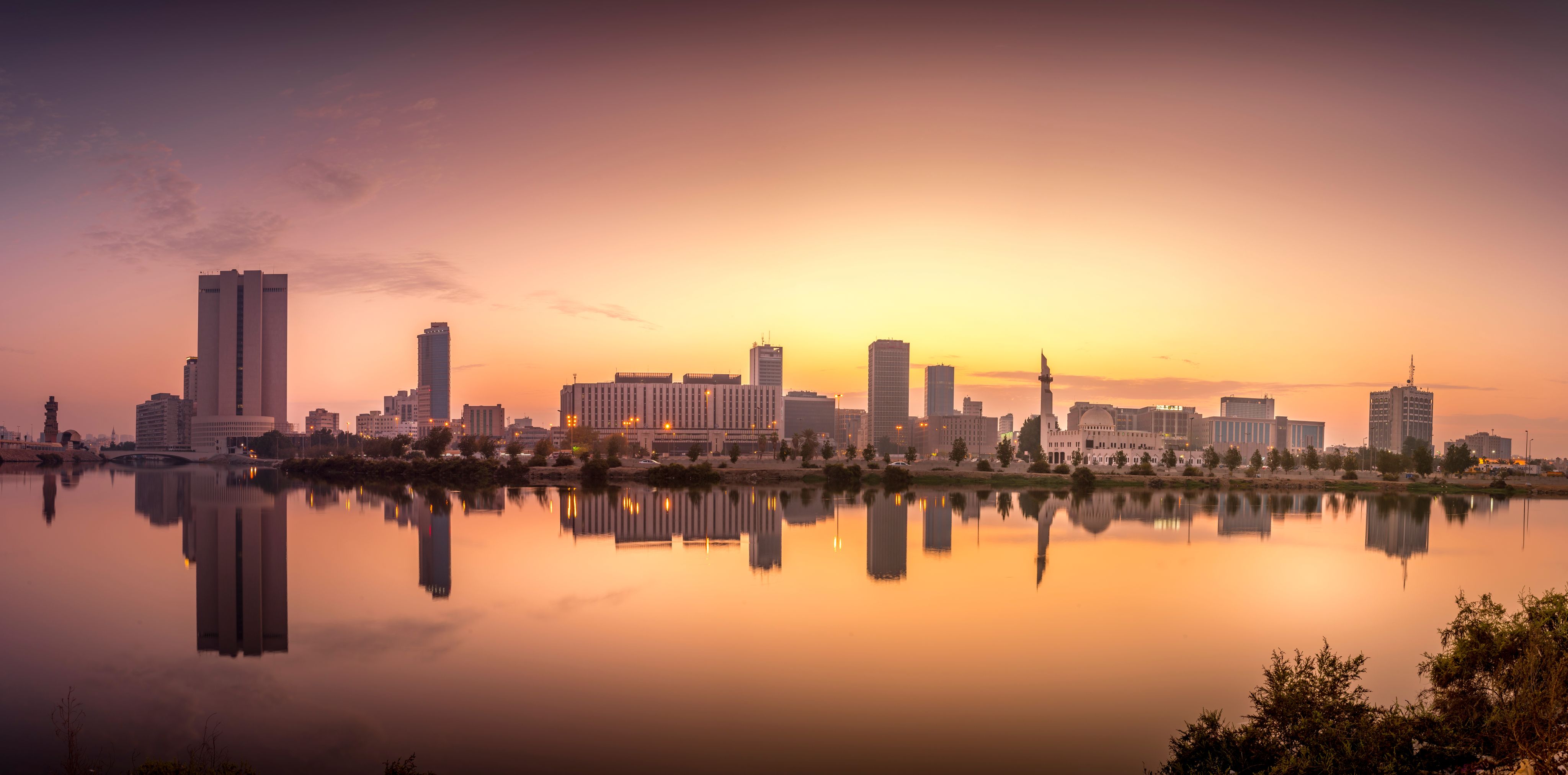The quiet revolution
Women's football in
Saudi Arabia, from
an illegal kickabout
to a World Cup bid

The revolution began with a kickabout. In a park in Saudi Arabia, Hessa Al-Sudairi and her friends began meeting up to play football. What they were doing was illegal. It was 2016. Women weren’t even allowed to watch football in stadiums. It would be another two years before they could drive cars.
That group of friends eventually established themselves as the Jeddah Eagles. “We started playing for fun and had local tournaments; we’d do it on our own,” she says. “I think because of that, we grabbed attention.”
Jeddah at dawn. Credit: Adobe Stock
Jeddah at dawn. Credit: Adobe Stock
“Seeing Saudi men bringing their daughters and watching them play – for me, that is amazing.
I never thought I would see the day”
Women’s football in Saudi is new – but it's catching up fast. So much so, the nation has submitted a bid for the 2035 Women’s World Cup.
Al-Sudairi now plays in goal for one of Saudi’s top professional teams, Jeddah side Al-Ittihad. When she’s not playing, Al-Sudairi works at the new regional training centre developing the next generation of footballing talent. The centre helps inspire six to 17-year-olds to get into football. Their efforts are already bearing fruit – now there’s a U17 national team. “I never thought I would see the day there’d be women’s football in Saudi and with the government’s support too,” Al-Sudairi says.
Women’s sport is finally being recognised in the country, and opinions are changing dramatically. “Seeing Saudi men bringing their daughters and watching them play – for me, that is amazing. I never thought I would see the day,” she says. “One of them drives 40 minutes to bring his seven-year-old daughter to the training centre, and that’s already telling you something.”
For the older generation of women in Saudi Arabia, the growth of women’s football is bittersweet. “The women my mum’s age are so happy,” Al-Sudairi says. “They’re so supportive and proud of what’s happening here and they’re like ‘you guys are living our dream’ and to me that’s heartbreaking.”
As Saudi Arabia develops women’s football, it's also attracting new talent from around the world.
In September 2023, Nigerian international Ashleigh Plumptre left Leicester City to join Al-Sudairi’s club Al-Ittihad and became the first WSL player to move to the Saudi Women’s Premier League.
“Why would I make a decision based on other people’s opinions when they don’t know what I feel like I can contribute to society?”
Following the expiration of her contract at the East Midlands club, Plumptre had offers from teams in the English and US Super Leagues, but none of them stood out to her. “I feel strongly about being part of something bigger,” she says. “I’ve always craved to be part of something where I’ve been able to win, but also have more of an impact by being myself.”
At first, she was hesitant when Al Ittihad showed interest, but after a call with head coach, Kelly Lindsey, Plumptre knew it was meant to be. “I went to LA to see family, and I called the club in the car on the way home from the airport and spoke to Kelly. We discussed our values and the things we care about beyond football; it completely aligned.”
Plumptre knew switching to a country battling an image of repression would attract criticism. “It’s not a selfish move,” she says. “When I finish my career, I will remember the moments I had with the people I am around. So, why would I make a decision based on other people’s opinions when they don’t know what I feel like I can contribute to society?”


The standard of play has a long way to go to get to the same level as the WSL, but the ambition is there. “It helps having internationals to come here and mix with the Saudi players who can grow through the help of internationals.”
Even with restrictions around social etiquette in Saudi Arabia, Plumptre feels safer than she does in England “Everything happens at night, so I can walk around on my own at night and never feel unsafe. “I do not think I could say the same if I did it in England.”
Despite her move to the Saudi Women’s Premier League, Plumptre misses the competitive nature of the WSL. “Girls here are learning to be competitive, and I am such a competitive person. Sometimes I look at them and think ‘how do you not want to exhaust yourself, why don’t you want to cause yourself pain!’”
In its second year of professionalism, the league is already having games streamed worldwide through the sports platform DAZN, and the future looks bright. “If people want a different experience and can be patient that the league is nowhere near one of the best in the world right now and know it’s a project, then I would recommend it,” Plumptre says.
While the game is taking steps forward – the project is stained by human rights concerns in the country. Same-sex sexual activity is illegal, with the death penalty as a punishment.
Liam Weeks, the Middle Eastern football specialist for Talksport, says he does not think the country will overcome LGBTQ rights issues, and it could stop the women’s game from progressing to the highest level.
“Anything to do with homosexuality is going to be a difficult thing for the population and authorities to overcome,” he explains. “I think it could even be a major hurdle in attracting top female talent to Saudi.”
With the league attracting foreign head coaches and support staff, Weeks believes the Saudi Women’s Premier League can become the best league in the world.
“There now has to be the creation of women’s academies because Saudi Arabia can have the biggest women’s football league.”
Also on Leicestershire Press
Caretakers of death
Eight billion people on this planet share one thing in common – their own eventual death. Many never see death close up and try their best to forget about it.
But for some people, it’s simply their job. In this special report, Nick Gascoyne gains an insight into three different occupations working with the deceased.
The trainee teacher using OnlyFans to travel the world
A story of webcams and wanderlust. "It took a lot of playing with Twitter and Reddit’s rules and skimpy bikinis to gain some traction, and even now I have to do some questionable things to keep it.” Grace Cushnie reports.
Graduation day in the graveyard
When Sara Ozen dreamt of her university graduation day, she imagined happiness, cheering and laughter. The 22-year-old tells Charlie Hawes how it became the day she buried her father




